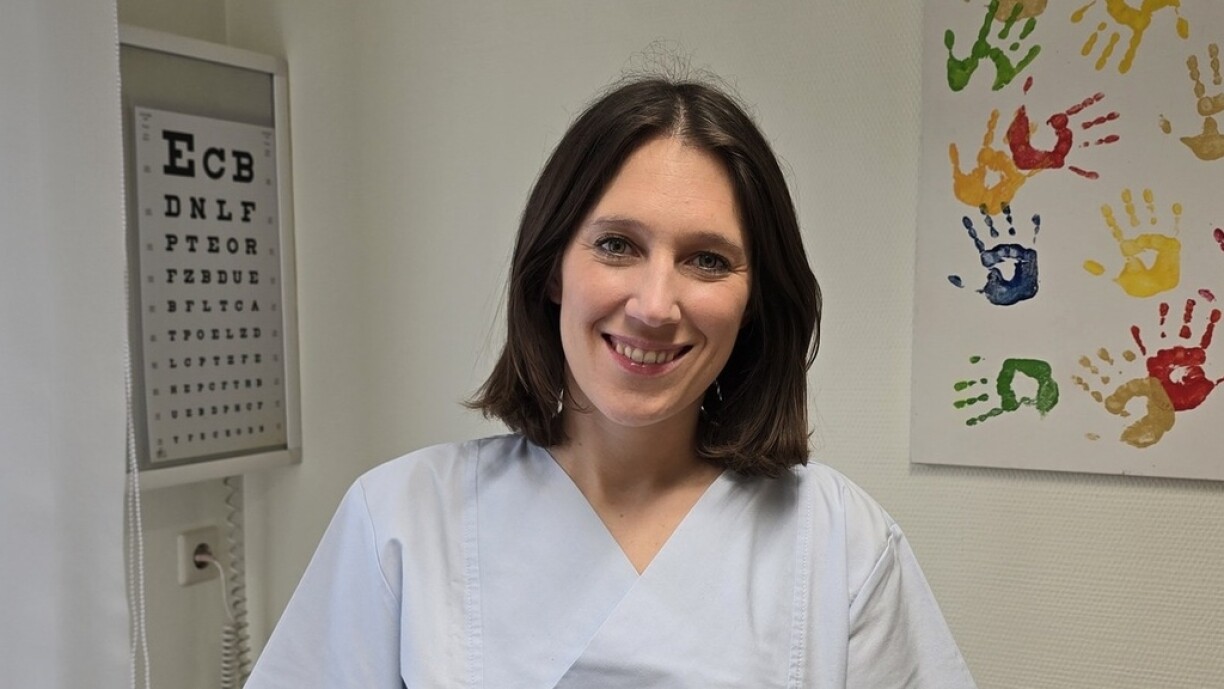
For Dr Lisa Zangarini, one of the first doctors to complete the Specialised Studies Diploma (DES) in General Medicine at the University of Luxembourg, the creation of a national General Practitioner (GP) training programme marks an important step forward.
Introduced in 2021, it allows the country to train its own generalists rather than relying entirely on foreign graduates. She considers this essential, noting that general practice is expected to become one of the most needed medical professions in the coming years.
The Luxembourg programme, she explained, also integrates a strong research component, encouraging future GPs to approach their work with a scientific mindset and to participate meaningfully in medical research and public health discussions.
Dr Zangarini described general practice as the branch of medicine most directly connected to people’s everyday lives. Countries with well-developed networks of family doctors tend to have higher life expectancy and better overall wellbeing, she observed. She also noted that the GP is often the first point of contact for patients and the one who accompanies them throughout life, from childhood consultations to end-of-life care.
Dr Zangarini added that, as populations age and more people live with multiple chronic conditions such as high blood pressure, diabetes, obesity, or mental health disorders, the GP’s role has become increasingly complex. She emphasised their responsibility to coordinate care across disciplines and to decide when specialist intervention is necessary, ensuring that treatment remains coherent.
Dr Zangarini believes that preventive care should form a stronger part of the health system. In her view, everyone should have at least one medical check-up per year, not only to address illness but also to discuss nutrition, physical activity, and mental health. Yet she pointed out that Luxembourg still lacks a dedicated budget for prevention, and that primary care professionals, including GPs, paediatricians, and gynaecologists, remain undervalued and underpaid.
According to her, GPs are currently among the lowest-paid specialists in the country, a situation that discourages young doctors from choosing this path. She also highlighted the limited social protections available to new practitioners: doctors who fall ill receive no financial compensation, and salaries remain lower than those offered in neighbouring countries such as Germany or Switzerland. This makes it difficult, she argued, to convince young professionals to stay and practise in Luxembourg.
In her daily work, Dr Zangarini often encounters patients who arrive with self-diagnoses made online, some correct, others completely off the mark. She acknowledged that artificial intelligence and other digital tools can play a positive role in healthcare, but also warned that they must be approached critically. Systems like ChatGPT, she noted, can generate convincing answers that lack essential details or context. For her, no technology can replace the doctor–patient conversation, which remains crucial for accurate evaluation and diagnosis.
Her current research focuses on how smartwatches and wearable technologies, such as those by Apple, Garmin or Samsung, can be integrated into clinical practice. These devices, she explained, could be particularly helpful for older patients or those with heart rhythm problems or obesity, allowing for continuous monitoring outside the clinic. However, she also stressed that constant exposure to health data can create anxiety for some users, so the benefits need to be assessed individually.
Dr Zangarini also stated that a new generation of doctors view medicine differently from their predecessors. Younger practitioners, she explained, are more conscious of their own wellbeing and strive for a more balanced lifestyle. She noted that they aim to practise what they preach: encouraging patients to rest, exercise, and manage stress, while applying the same principles in their own lives.
She contrasted this mindset with the older model of medicine, when doctors regularly worked 80-hour weeks and burnout was considered part of the job. Dr Zangarini concluded that today’s approach seeks to make the profession more sustainable in terms of work-life balance.